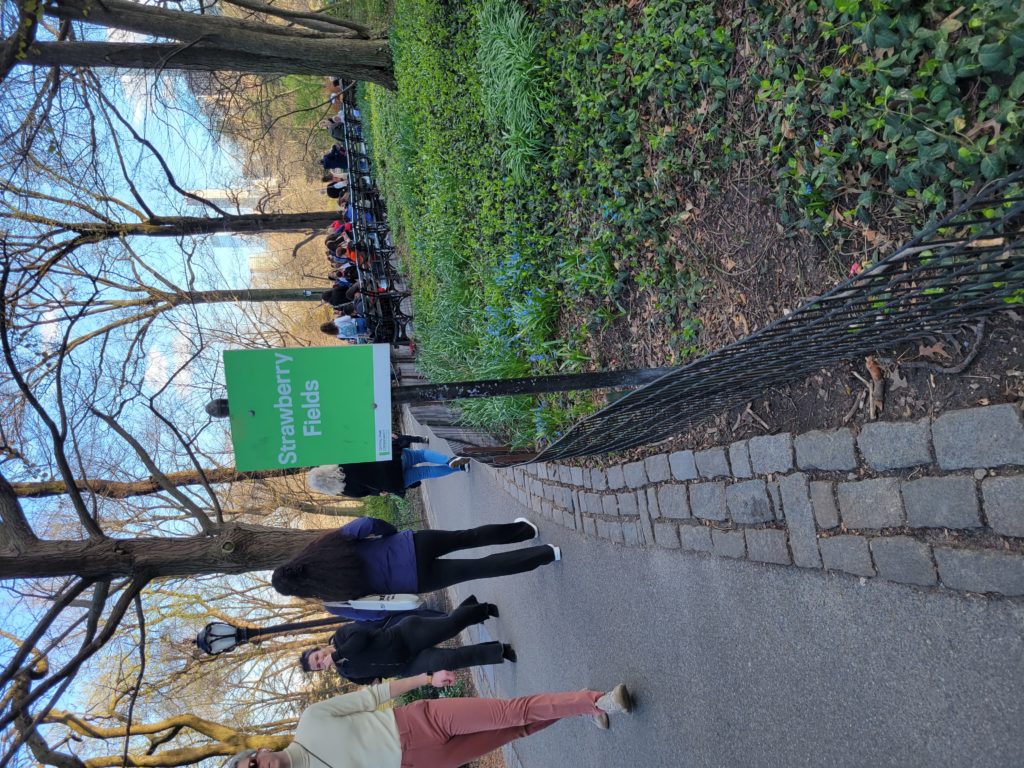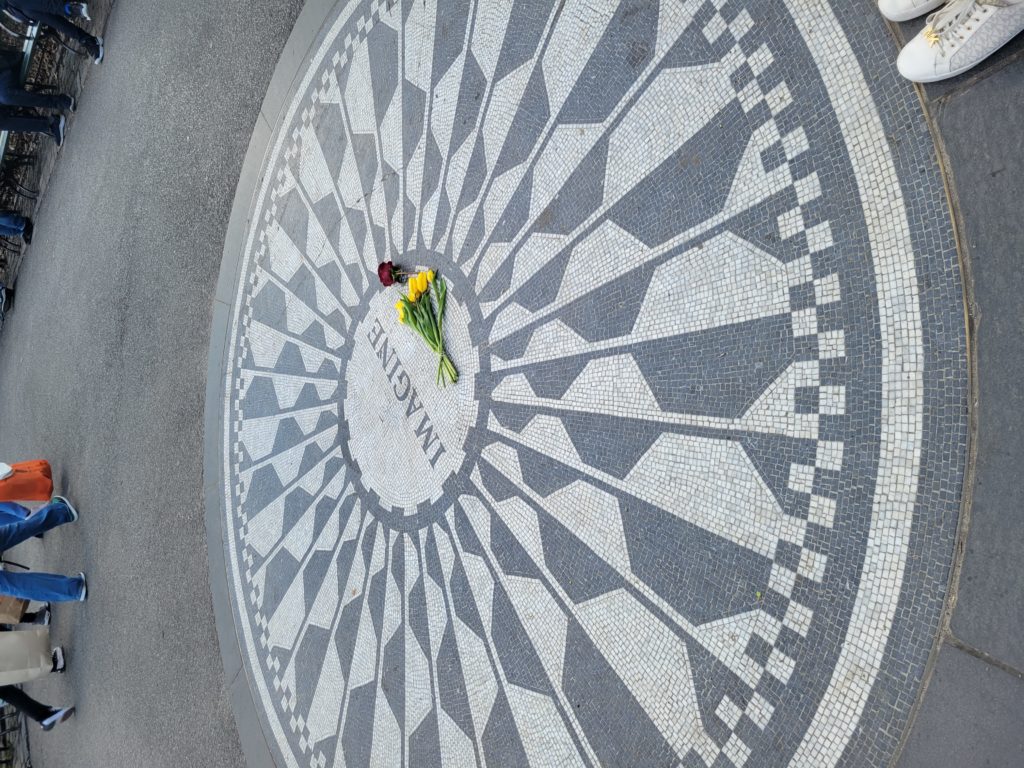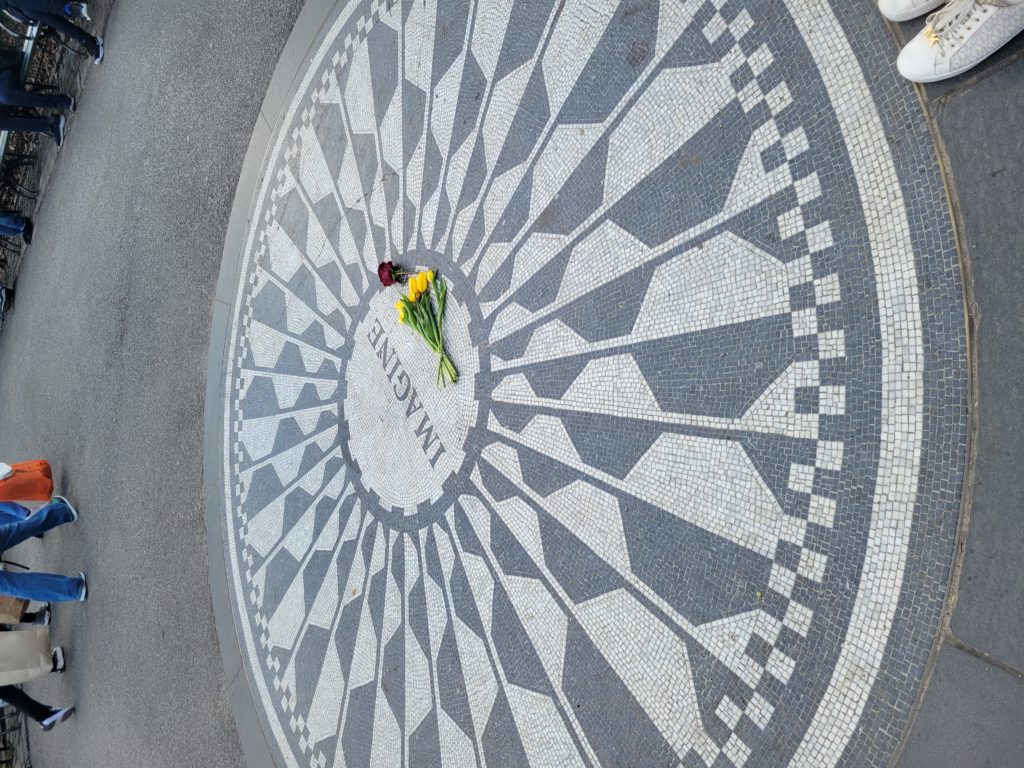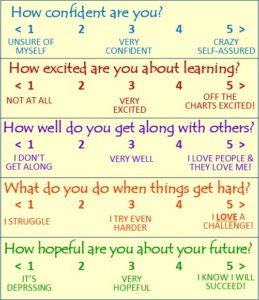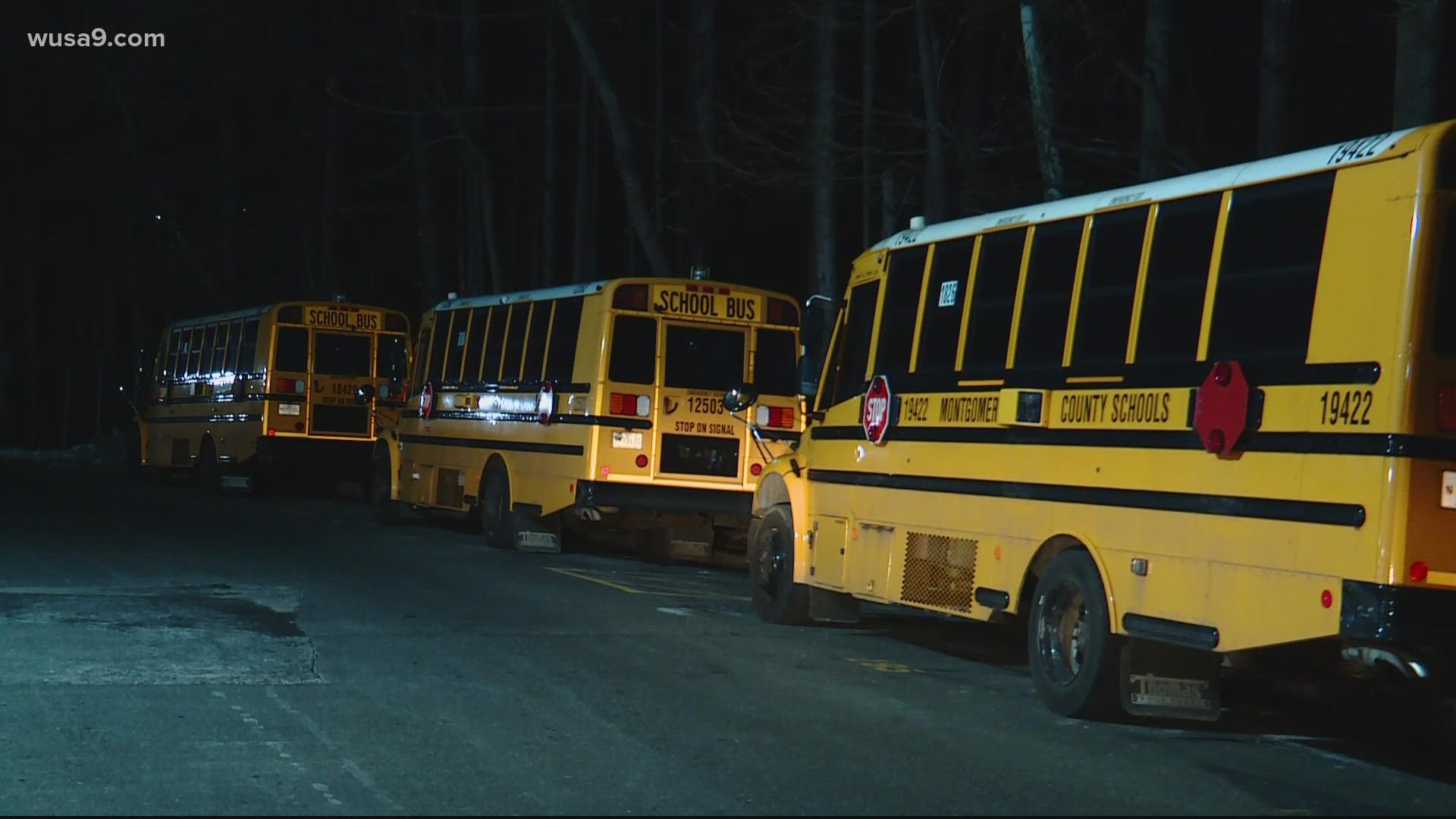In Brooklyn, Downtown Brooklyn, DUMBO, Guides, See & Do by KatieApril 20, 20207 Comments
Our easy to follow guide to walking the Brooklyn Bridge and Brooklyn Bridge tips will help you plan your dream visit to one of the most famous landmarks of NYC, not to mention the history of the Brooklyn Bridge is also fascinating.
We provide you with everything you need to know before walking the Brooklyn Bridge including the history, where to go, what you’ll see, and how to walk across the Brooklyn Bridge pedestrian walkway as well as how to bike it or drive it!
Here’s all the tips, tricks, dos, and don’ts of walking the Brooklyn Bridge, one of the best walks in Brooklyn and NYC!
BROOKLYN BRIDGE WALK GUIDE & TIPS

TABLE OF CONTENTS
- Brief History of the Brooklyn Bridge
- Ways to Cross the Brooklyn Bridge
- How Long is the Brooklyn Bridge?
- How Long it Takes to Cross the Brooklyn Bridge?
- Walking Across the Brooklyn Bridge Directions
- Best Views Walking the Brooklyn Bridge
- Tips for Walking the Brooklyn Bridge
- What to do Nearby the Brooklyn Bridge
- Brooklyn Bridge Walking Tour
BRIEF HISTORY OF THE BROOKLYN BRIDGE

The Brooklyn Bridge was completed in 1883 and is one of the oldest suspension bridges in the United States. The historic and iconic bridge is one of the most recognizable in the country and connects the two boroughs of Manhattan and Brooklyn over the East River.
Brooklyn Bridge was designed by John Augustus Roebling, but after suffering an injury and complications with recovery, he died and his son Washington Roebling took over the project. This wouldn’t be the first complication during the construction of the Brooklyn Bridge.
Many workers developed “caisson disease,” which occurs when workers would leave a compressed atmosphere and enter into a normal atmosphere too quickly.
This took place when workers were sent below the surface of the East River to clear mud and boulders from the bottom of the river to begin laying down granite.
Washington Roebling fell ill to this disease and his wife Emily Warren Roebling took over the operation.
When the Brooklyn Bridge opened to the public on May 24, 1883. Emily Roebling was the first to walk across the Brooklyn Bridge.
On the opening day, over 150,000 pedestrians crossed the bridge including American President Chester A. Arthur and New York Mayor Franklin Edson.
Shortly after the Brooklyn Bridge’s completion, rumors that it would somehow collapse filled the city with panic. In order to put these rumors to rest, P.T. Barnum led 21 elephants across the bridge in 1884, wouldn’t that be a sight?
You can find a plaque on your Brooklyn Bridge walk dedicated to John Augustus Roebling, Washington Roebling, and Emily Roebling.
The Brooklyn Bridge’s total cost was over $15 million in the 19th century and led to a few dozen deaths and over 100 caisson disease cases.
Learn more about the history of the Brooklyn Bridge.
WAYS TO CROSS THE BROOKLYN BRIDGE

There are a few different ways to cross the Brooklyn Bridge, by foot, car, bicycle, and below by water taxi or ferry.
DRIVING ACROSS THE BROOKLYN BRIDGE
If you’re looking for a quick cityscape fix, cruise across the Brooklyn Bridge in your car, rideshare, or taxi. This famous New York City bridge is actually one of the rare toll free motorways in and out of Manhattan, which makes it more appealing for drivers in NYC.
Although you can observe the beautiful skyline from the comfort of your car, don’t forget that traffic is a possibility. If you’re looking for a day of being a tourist and taking your time at this national landmark, you might want to consider our other options of crossing the bridge.
BIKING ACROSS THE BROOKLYN BRIDGE
The key to biking in New York City as a visitor or someone without their own bicycle is using CitiBike rentals who have docking stations all throughout the city.
CitiBike is really easy to use, you just have to download the app for payment as well as finding your nearest docking station to pick up or drop off your bikes.
As of September 2021, biking the Brooklyn Bridge is no longer possible on the pedestrian pathway on the top of the bridge. Prior to the change, bikers and pedestrians shared the same pathway with a few painted lines that distinguished where cyclists stayed and where pedestrians stayed.
This was chaos for everyone as often unknowing tourists didn’t obey either the bike lane or the pedestrian lane making it a really frustrating and chaotic experience.
Now, there is a designated bike lane on the lower level of the bridge alongside the motor traffic. While the lane is separate from the motorists, you do not get the same ‘views’ as you did previously when the bike lane shared the upper level of the bridge with pedestrians.
CROSSING BY THE BROOKLYN BRIDGE BY WATER
A unique vantage point for seeing the Brooklyn Bridge is via below from the water using the NYC Ferry or New York Water Taxi to take you from Brooklyn to Manhattan or vice versa on the East River.
The NYC Ferry has a route that takes you from South Brooklyn to Wall Street (Pier 11) in Lower Manhattan. This costs the same as riding the subway, $2.75. However, if you’re bringing a bicycle for any reason there is a small additional fee when you go to buy your ticket.
The other water option is by the New York Water Taxi. This is a sightseeing cruise with multiple stops around popular city landmarks by water! You will have to by an all day pass, so this option only makes sense if you plan on using this to see many attractions.
WALKING THE BROOKLYN BRIDGE
Many would say, walking the Brooklyn Bridge is the best way to do it. You will deal with difficult crowds, flying selfie sticks, and aggressive cyclist commuters, but it’s totally worth it. I mean taking the slowest way possible gives you a chance to soak in this amazing NYC landmark and views!
Walking the Brooklyn Bridge is one of the most popular and iconic things to do in Brooklyn and in New York City. Because of its popularity you can imagine that there will be many other people on the bridge trying to see this iconic landmark from up close and experiencing the epic views along the way.
It is estimated that nearly 4,000-10,000 people walk the Brooklyn Bridge per day!
Something you used to have to keep in mind when walking the Brooklyn Bridge is that you needed to stay in the pedestrian lanes, but now that’s no longer an issue, the upper level of the Brooklyn Bridge is now for pedestrians only.
Before, many people stop to take photos not realizing they are standing directly in the bicycle lane. You’ll probably see at least a dozen during your visit and walk across the Brooklyn Bridge if not more. Besides giving tourists on bikes a hard time, I mean it when I say that these New York City bicyclists will run over you and not even look back. So now, that dilemma is no more.
HOW LONG IS THE BROOKLYN BRIDGE?

Many people wonder these common questions including how long the Brooklyn Bridge is in feet and how long the Brooklyn Bridge is in miles! When you’re there in person it really doesn’t look as long as it really is!
HOW LONG THE BROOKLYN BRIDGE IS IN FEET
The Brooklyn Bridge is 5,989 total feet.
HOW LONG IS THE BROOKLYN BRIDGE IN MILES
The Brooklyn Bridge is 1.134 miles but the entrances for the Brooklyn Bridge pedestrian walkway are approximately 1.6 miles apart.
HOW LONG IT TAKES TO CROSS THE BROOKLYN BRIDGE?

Planning to cross one of the most famous NYC bridges? You might want to plan for how long it takes to cross the Brooklyn Bridge, especially if you’re trying to plan around visiting this iconic landmark.
DRIVING ACROSS THE BROOKLYN BRIDGE
As we mentioned before, time spent driving on the Brooklyn Bridge can vary. If you’re traveling in the early morning or mid-day when everyone should be in their offices, you may be able to drive across the whole bridge without delays. As mentioned, the Brooklyn Bridge is just over 1 mile long, so you can expect to cross quickly by car if there is no traffic.
I would not suggest taking this route when you’re in a cab around rush hour, unless you’re prepared for a long wait and a higher fare at the end of your ride.
You can also ride across the bridge quickly in the later hours of the night if you’re coming back from a night out in Brooklyn or Manhattan.
If you’re in a taxi, you can always ask your driver what the conditions are on the bridge, since they are driving the city all day everyday they might have a good idea of whether or not its a good time to drive across. If not, you can always have them drop you off at the Brooklyn Bridge Pedestrian Walkway to finish the rest of your journey by foot!
BIKING ACROSS THE BROOKLYN BRIDGE
Biking across the Brooklyn Bridge may take you as little as 15 minutes. Biking across the Brooklyn Bridge bike lane is on the lower level next to motorists. While there is a barricade between the bike lane and the motorists, some have said that the fast moving vehicles can be a bit alarming, so if you’re new to biking in the city just be aware of this.
WALKING THE BROOKLYN BRIDGE
If you’re visiting and walking the Brooklyn Bridge for a first time, chances are you’re going to want to take your time and rightfully so.
The quickest walk by foot without stops will take around 30 minutes. However, with crowds and photo and view stops along the way you can expect walking the Brooklyn Bridge to take closer to 60 minutes plus depending entirely on you and your stops as well as the crowds.
Remember, the Brooklyn Bridge is just over 1 mile long, and if you’re walking you’re using the Brooklyn Bridge pedestrian walkways which are approximately 1.6 miles apart.
Unless you come on a slow day, you can imagine that when you’re adding hundreds of people and other people trying to sell you things as you’re walking the Brooklyn Bridge, it could lengthen the process.
My pro tip would be walking across the Brooklyn Bridge at a slow pace – expect for it to take longer than you planned that way you have extra time for unplanned stops and photos and you won’t be in a rush.
This won’t be something you’re going to do everyday whether you live in New York or you’re just visiting, so make it count. Enjoy every second of walking the Brooklyn Bridge.
Read Next: Williamsburg Bridge Walk Guide & Tips
WALKING ACROSS THE BROOKLYN BRIDGE DIRECTIONS

Using the Brooklyn Bridge pedestrian walkway is the only way to cross the bridge by foot or access the bridge if you’re a pedestrian. Here are detailed steps on how to access the Brooklyn Bridge pedestrian walkway from both the Brooklyn side and the Manhattan side of the Bridge.
WALKING THE BROOKLYN BRIDGE: BROOKLYN SIDE
Starting your Brooklyn Bridge walk in Brooklyn? Great, there are a couple of entrances to the Brooklyn Bridge Pedestrian Walkway.
If you’re entering from Downtown Brooklyn, the walkway begins on Tillary Street and Boerum Place.
The second entrance is a stairway in the underpass located in DUMBO on Washington Street, 2 blocks from Front Street where the famous DUMBO Instagram photo is at. There is a stairway in the underpass that is the entrance leading directly to the Brooklyn Bridge Pedestrian Walkway.
I would always recommend walking the Brooklyn Bridge starting in Brooklyn because of the breathtaking Manhattan and famous NYC skyline views. This is where you can get the most famous views of the city.
Nearest Subway:
Unless you are already in the Downtown Brooklyn or DUMBO neighborhoods of Brooklyn, you will probably be taking the subway to the Brooklyn Bridge and going by foot the rest of the way.
There are a few different options each within a reasonable walking distance to the Brooklyn Bridge Pedestrian Walkway. All of these subway stations are relatively the same distance from the entrance, so choose whatever is most convenient from your starting point!
- A, C or F subway lines to Jay Street/MetroTech Station
- N or R subway lines to Court Street Station
- 2/3 or 4/5 subway lines to Borough Hall Station
- A or C subway lines to High Street (take the High Street Exit – this is the most direct route)
WALKING THE BROOKLYN BRIDGE: MANHATTAN SIDE
I won’t lie, sometimes when I’m traveling back home to Brooklyn, I will just do the Brooklyn Bridge walk to avoid putting more money on my Metrocard and to just enjoy the bridge. I also consider this option after I’ve eaten a delicious New York meal and need to burn some calories.
From the Manhattan side, you can enter the Brooklyn Bridge Pedestrian Walkway at the northeast corner of City Hall Park along Centre Street.
There’s usually a lot of vendors on the Manhattan side, so don’t be afraid to snag a hot dog or pretzel and a souvenir before you embark on your Brooklyn Bridge walk.
Nearest Subway
Chances are you need to get close to the Brooklyn Bridge pedestrian walkway via the Manhattan side before crossing! Here are the closest subway stops that are just a short walk away.
The Brooklyn Bridge—City Hall and Chambers St. are closest to the Brooklyn Bridge Pedestrian Walkway, the bridge is located right across the street from these subway stations.
- 4, 5, or 6 subway lines to Brooklyn Bridge/City Hall
- J or Z subway lines to Chambers St.
- 2 or 3 subway lines to Park Place
- N or R subway lines to City Hall
- A or C subway lines to Fulton Street
BEST VIEWS WALKING THE BROOKLYN BRIDGE

As mentioned before, the best views on the Brooklyn Bridge are starting/coming from the Brooklyn side and walking toward Manhattan. The best way to soak in all the amazing views and photo ops is to take your time on your Brooklyn Bridge walk. This really is one of the best free things to do in Brooklyn too!
Here are some of my favorite views to take in while on the Brooklyn Bridge walk, one of the best places for Brooklyn photography and Instagram spots:
Brooklyn Bridge towers— Pose underneath the famous arches while walking on the Brooklyn Bridge. These pictures turn out the absolute best on an empty bridge day.
Statue of Liberty— Take a look off into the distance and find Lady Liberty dazzling in the horizon during your Brooklyn Bridge walk.
Lower Manhattan— The staggering and stunning skyline is jaw-dropping, make sure to pose for a couple pictures with the cityscape including the World Trade Center.
Manhattan Bridge— Don’t forget about the blue beautiful bridge right across from the Brooklyn Bridge.
About halfway through walking the Brooklyn Bridge, there will be some little areas to pull over and snap some really great shots with Lower Manhattan as your backdrop.
When taking photos, DO NOT SIT OR STAND ON LEDGES when posing for pictures. There are no rails to protect pedestrians from falling down onto the roadway below and besides risking your life, you’re putting others in danger. Please be responsible.
TIPS FOR WALKING THE BROOKLYN BRIDGE

The key to walking the Brooklyn Bridge is being prepared for the possibility of crowds and if you don’t want that experience, you will need to have patience and plan around it.
It’s easy to get frustrated with big crowds, especially if you’ve had a long touristy day. Here are a couple of pro local tips when walking the Brooklyn Bridge:
Wear comfortable shoes: You’ll be walking alot during your visit to Brooklyn and NYC. Save your feet by coming prepared with stylish and comfortable walking shoes.
Bring your camera: Most people already have great cameras built into their smartphones, but if you do have a DSLR or other camera we do recommend bringing that on your Brooklyn Bridge walk as this is one of the best places for photos in the city. Leave your tripod behind unless you plan at coming as early as sunrise to get to the bridge before anyone else or are coming on a day where the bridge is empty.
Come on a crappy day: Want to avoid people? The worst the weather the more likely the crowds will thin out on the Brooklyn Bridge! Rainy and cold winter days are some of the best times to experience the Brooklyn Bridge without hoards of people!
Prepare for the weather: Rainy and cold days are some of the best times to visit and walk the Brooklyn Bridge if you’re looking to avoid the crowds. If this is the case for you, come prepared! It gets pretty windy above the water so you will probably need more than just an umbrella. Layer up if its a chillier day to make your Brooklyn Bridge walk more enjoyable!
Be ready to be patient: You will get irritated, you will get separated from your group, you might get smacked by a selfie stick, but remember it’s part of sharing this experience with everyone else and while it might test your patience, it’s good to come prepared ready for a more crowded experience.
Start on the Brooklyn Side: This is just a reminder that if you are looking for the most ‘iconic’ way to do the Brooklyn Bridge walk you should start on the Brooklyn side so you can see Manhattan and the NYC skyline when you walk.
Weekdays can be less crowded*: Unless it’s peak summer season, if you come on a weekday you have a better chance to avoid the bigger crowds than on the weekends! But notice we said, *can be*. This is not always the case.
Holidays are always busy: Planning a visit to the Brooklyn Bridge around a holiday? Expect more crowds and be ready to have to practice some extra patience!
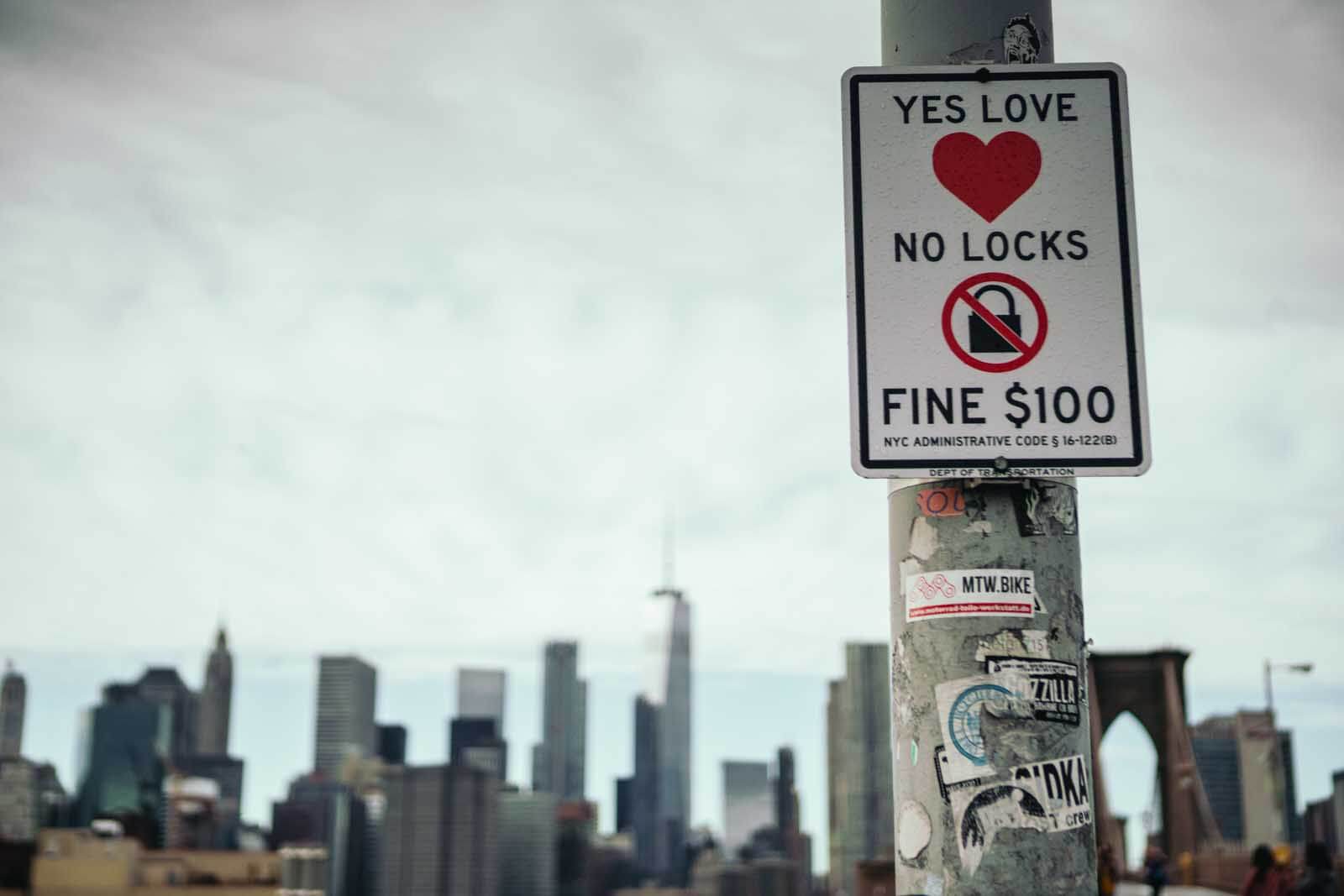
Don’t leave a lock on the bridge: This is not allowed and you could get ticketed with a fine if caught.
Be sure to see our entire Brooklyn packing list guide for what you don’t want to leave home without when planning your Brooklyn trip and more great tips.
WHAT TO DO NEARBY THE BROOKLYN BRIDGE

Both sides of the Brooklyn Bridge have so much to offer, which is the best part about having this bridge that connects the two of the best boroughs in New York City.
Here are some of my top picks for what to do before or after your Brooklyn Bridge walk.
If you’re looking for another bridge walk with views, consider walking one way on the Brooklyn Bridge and the other way on the Manhattan Bridge walk.
THINGS TO DO NEARBY THE BROOKLYN BRIDGE IN MANHATTAN

The Brooklyn Bridge Pedestrian Walkway drops you off right in Downtown Manhattan. From here you have access to some of the best parts of Manhattan.
City Hall— Located right next to the Brooklyn Bridge walkway entrance, check out New York City Hall. This City Hall is the oldest city hall in the United States. Built from 1803-1812, so ultimately it’s labeled a U.S. National Historic Landmark!
One World Trade Center— Take about a 15 minute stroll over to the One World Trade Center after walking the Brooklyn Bridge. Make sure to get tickets for the observation deck, one of just three observation decks in New York City! This destination is just about one mile away from the Brooklyn Bridge walking entrance/exit. Alternatively, you can just visit from the outside and enjoy all the colorful murals here too.
9/11 Memorial & Museum— Just down the street from the One World Trade Center, visit the 9/11 Memorial & Memorial. The Memorial’s twin reflecting pools are free of charge, but if you have time, we would suggest checking out the Museum as well. This historical spot is a little over half a mile from the Brooklyn Bridge walking entrance, about a 15 minute walk.
Oculus Center— Ever wonder what that crazy looking white building is near One World Trade and the 9/11 Memorial? It’s called the Oculus Center, it’s full of high-end stores, kiosks, and subway stops! Located just half a mile from the Brooklyn Bridge Pedestrian Walkway, it should take just about 12 minutes to walk there.
Brookfield Place— Brookfield is also another spot to fulfill all your shopping needs in New York City. Around a 17 minute walk (.7 miles) from the Brooklyn Bridge walking entrance, you can find some of New York’s best stores such as Lululemon, Madewell, Tory Burch, Michael Kors, Louis Vuitton, J. Crew, and much more!
SoHo—Visit one of the most famous shopping spots and trendy neighborhoods there is! SoHo is just under a mile away from the Brooklyn Bridge walking entrance and takes just under 20 minutes to get there! Find every store you could imagine just in this area of NYC! Check out some of the options like Topshop, Zara, Urban Outfitters, H&M, & Other Stories, Forever21, and all the designer brands you can think of.
Chinatown— While you’re in the area, check out one of the iconic areas in Manhattan! Chinatown is just about a 16 minute (.7 miles) walk from the Brooklyn Bridge walkway entrance. You can check out some historical museums, the famous Canal St, and try some awesome Chinese food.
THINGS TO DO NEARBY THE BROOKLYN BRIDGE IN BROOKLYN

The Downtown Brooklyn and DUMBO areas surrounding the bridge are a can’t miss experience. Here are some great recommendations for before or after your Brooklyn Bridge walk in Brooklyn.
Hang out in DUMBO – DUMBO is one of our favorite neighborhoods to hang out in. If you’ve built up an appetite be sure to try some of the best pizza in DUMBO (some of the best in the city) or check out the different DUMBO restaurants with a view before/after exploring the rest of the best things to do in DUMBO.
Brooklyn Bridge Park- Visit this Brooklyn park with the best views in the city! Located on DUMBO’s waterfront you have some of the best views of Manhattan, the Brooklyn Bridge, and Manhattan Bridge all in one spot. See our entire guide for best things to do in Brooklyn Bridge Park.
Time Out Market New York— Time Out Market New York is an amazing food hall in DUMBO featuring the best foodie scene of the city under one roof. There are 21 different gourmet vendors located overlooking the East River and the Manhattan skyline. Time Out Market is about a 7 minute walk (.3 miles) from the Brooklyn Bridge walking entrance.
Dekalb Market and Food Hall— You will not want to miss this famous Brooklyn spot a short 15 minute (.7 miles) walk away from the Brooklyn Bridge Pedestrian Walkway on Tillary St. Equipped with multiple stores such as Trader Joe’s, Target, Century 21, an ahhhhmazing food hall with over 40 vendors, and the Alamo Drafthouse, you can’t ask for anything more.
Junior’s— Junior’s Restaurant is a New York delicacy with amazing food and even better desserts. Did you even go to New York if you didn’t have a slice of Junior’s cheesecake? Dine in after a quick 16 min walk (.7 miles) from the Brooklyn Bridge walking entrance.
Fulton St Mall— What is a trip to New York without a shopping spree? Although you can do this in SoHo and other hot spots in Manhattan, you can do it right here in Brooklyn too. Check out awesome stores like Macy’s, Nordstrom Rack, H&M, American Eagle, Old Navy, TJ Maxx and more just a short 13 minute walk (.5 miles) from the Brooklyn Bridge walking entrance on Tillary St.
Stay in DUMBO – Want to stay in DUMBO with an amazing view of NYC in this popular neighborhood? See our full guide for where to stay in DUMBO for your best accommodation options for your visit.
BROOKLYN BRIDGE WALKING TOUR

Want to learn about the fascinating history of the Brooklyn Bridge? From the deadly construction to other historical events that took place around the bridge and the fabric of NYC?
Join a Brooklyn Bridge walking tour with a guide! This 2-hour Brooklyn Bridge walking tour will cover all things related to the Brooklyn Bridge from fun facts to history as well as stops in DUMBO and Manhattan.
Book your Brooklyn Bridge Walking Tour
Found this guide to walking the Brooklyn Bridge helpful or interesting? Bookmark for later or share the love below on Pinterest!

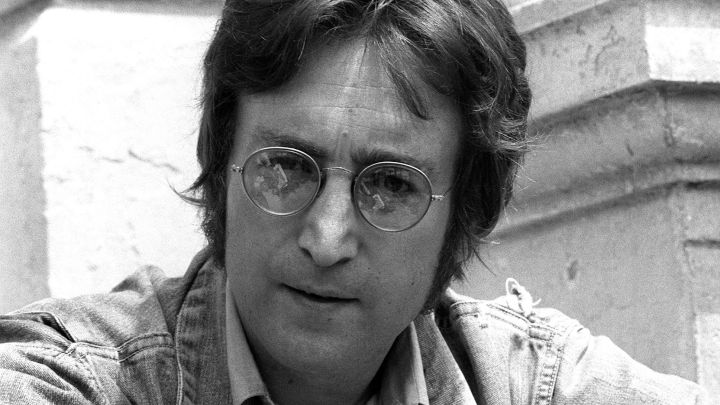


 by Linda McCartney
by Linda McCartney 









